Gina’s Review: This is such an important topic today! Thanks for these insights to remind us to accept, and love, people as they are.
>>>>>>>>>>>>>>>>>>>>>>>>>>><<<<<<<<<<<<<<<<<<<<<<<<<

A great source of free informationA person of indeterminate gender boarded the bus one afternoon as I was quasi-dozing through my ride home. The presence of this person caused a staticky buzz among the passengers. “That’s a man,” the man next to me declared. I immediately perked up to see what the hubbub was all about. I was stunned. Not by the new passenger, a delicate person in pink bike shorts and a faint five-o’clock shadow, but by the output of opinion stated by the men on the bus. I knew their grumblings about “not right” and “makes me sick” were in self-defense. Any tolerance or acceptance on their part would bring their own manhood into question. I would have laughed at this show of manly declarations put on for the sake of one another if it all didn’t make me just too sad. I marveled at the new passenger’s ability to appear nonchalant in the face of these clearly-heard protestations. As someone who defies gender norms, this gentle person must have had to cultivate a careful “I don’t give a shit what you say” attitude, one that ignores in a manner that does not incite provocation. I laughed inwardly at my concern for a person who clearly stood on their own solid ground.
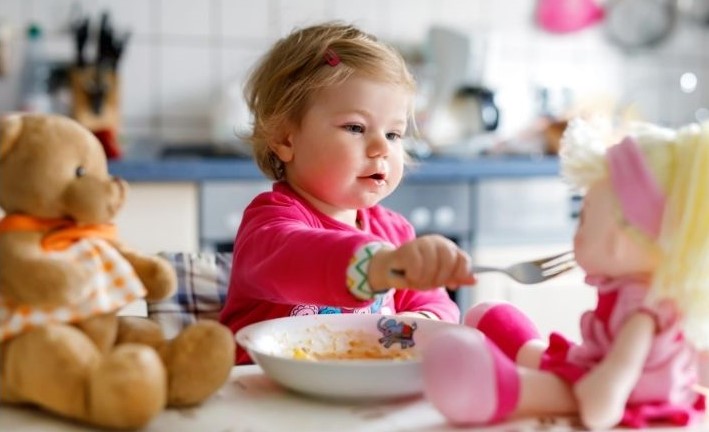
NurturingI was born in the 1950s when the demarcation between boys and girls was swift and strong. Gender identity was assigned and reinforced by parents, peers and the presiding culture. Stereotypes prevailed not only in the realm of appearances but also personality traits. I was a girl-child, expected to be quiet in my play and demeanor, nurturing my dolls, accommodating to my brothers (fat chance) and other males, modest in my ambitions and docile in the face of authority. Much of the time, I complied. I was a “good” girl, but I was raised with boys. I had no sister with whom I could identify and share stereotypical interests. My brothers played outside. I joined them in running around the neighborhood, riding our bikes to far-flung destinations, roughhousing on the playground and staying out until dark with no supervision whatsoever. The only doll I loved was gender-ambiguous with freckles and short red hair that I named Paco. We shared a love of the same outdoor adventures, though poor Paco was often kidnapped and tortured and held for ransom.
And yes, I still love those doll-stealing brothers who both angered me and kept me strong. I believe it was these sibling-shared experiences that helped to shape my personality. My older brother recently told me he was often charged by our father with the task of looking out for me. I’m not sure if my father meant to keep me safe, or was warning my brother to be aware that I was capable of creeping up behind him with a knife. Paco’s revenge!
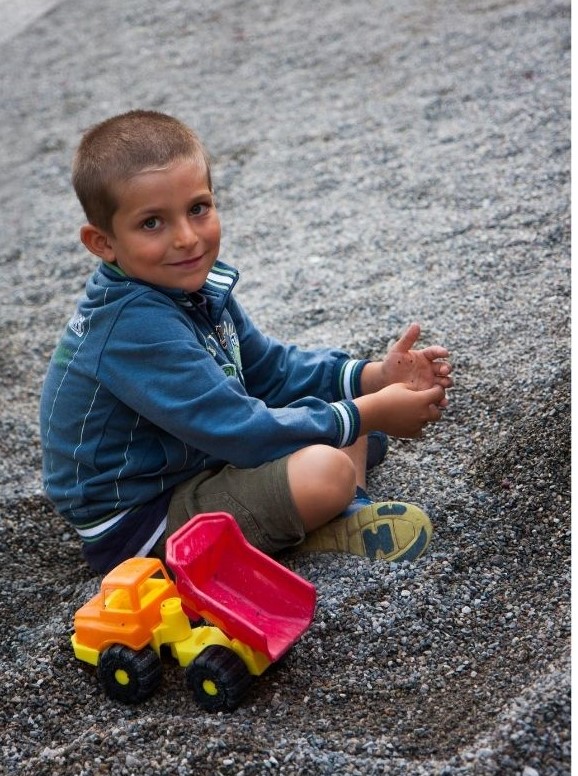
Ok for boys to get dirtyI got older and became attached to girls and some of their girly things. But my fiercely individual traits, forged by games of trench ball and fights on the neighborhood playground, remained. I grew, evolved and was shaped by my environment to have a natural mix of those old stereotypical characteristics, both male and female, that make up a unique person. I still fall within the traditional range of “female” traits and behaviors. For the most part. I look like a woman even when I’m not acting in the prescribed manner. Are there some people out there who would like me to wear a dress and stop swearing and give up expecting to be treated equally with men? Perhaps. Overcoming how our society expects us to look and behave can be the source of much confusion, pain and lasting damage for those among us who don’t quite, or refuse to, fit the mold. Being yourself can be a battle.
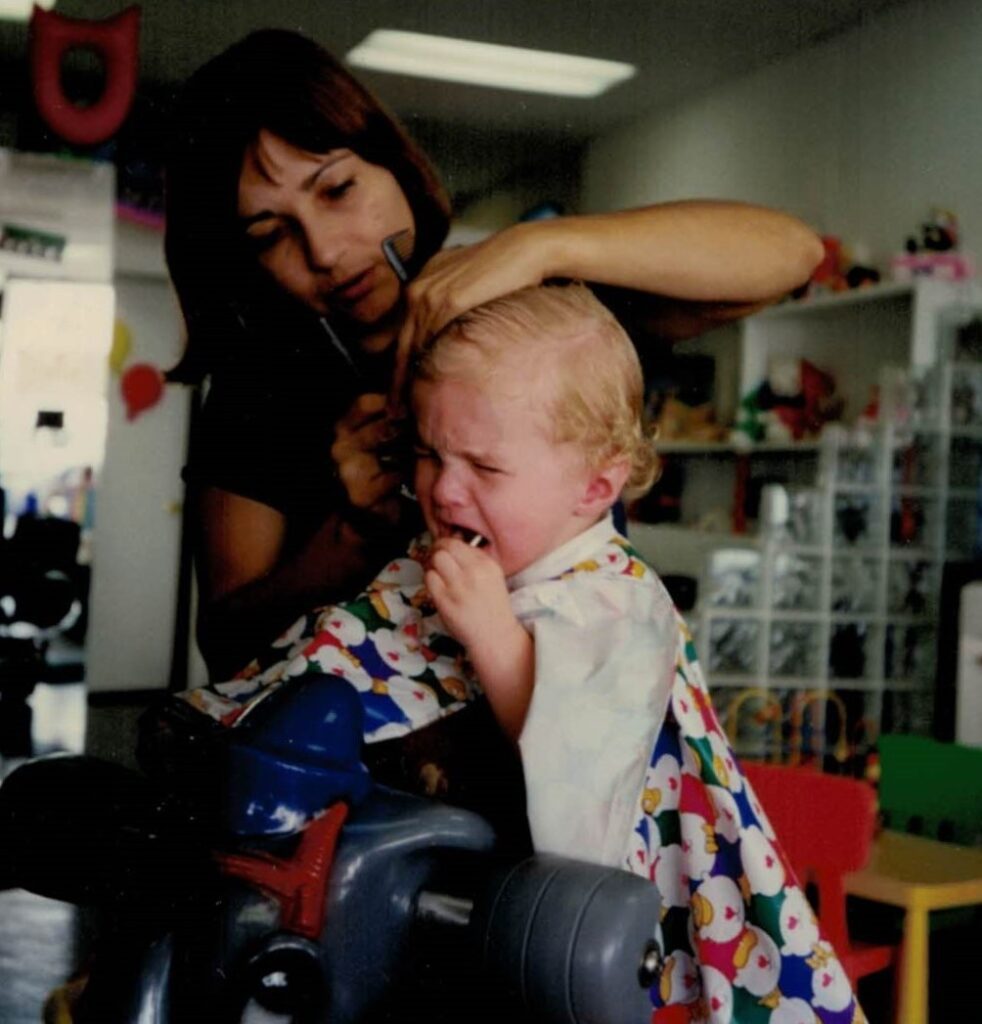
So unfair!When my son was a baby, he had delightful blond curls. I became so annoyed by the “she’s so cute” comments that I started dressing him in dark blue shirts emblazoned with trucks or hockey team names. But all anyone saw was the pretty hair. By the time he was two, we gave up declaring his maleness and cut his hair to the U.S. Marine’s-prescribed length. His crying could be heard from the barbershop parking lot. I kept a lock of his hair to remind me that it’s just hair and was not worth the battle just to prove to strangers he was a boy.
Why did outward appearance of gender seem so important to me at the time? I rarely cared what strangers thought of me, but for some reason I was diligent in stuffing my child into the correct gender box. As he got older, I found this desire to define him eroding. He was clearly expressing a good mix of gender-based traits, strong and comfortable in his knowledge that he was a boy, even expressing his desire from time to time to cut the curls. I became more oriented in helping him experience a variety of activities, and those of his own choosing, to develop a well-rounded and diverse wealth of learning experiences. Not just “boy” stuff.

My son was in 5th grade when I first met a trans-gendered person. I was going to college to finish my degree in Human Development. I met Ellie at the University Women’s Resource Center when she did a presentation about her transgender journey. I was struck by her candidness and her courage. Her Muslim family was bewildered when she “came out” to them about her gender identity. Acceptance was slow. They, like the rest of the world, had firmly categorized her as a boy. Changing that designation would be astronomically difficult. Meeting Ellie had a huge impact on how I perceived gender. As a student of human development, I sought out further stories of the challenges of nontraditional gender identity.
I wanted to understand the concept of gender, which, according to my studies, is mind/brain-oriented rather than strictly physically dictated. The formation of the human being is so complex, identity so personal, that relating to anyone who experiences anything other than what is societally considered normal, is difficult. But empathy does not require full understanding, and as compassion arises, relating to my fellow beings becomes less conflicted and more accepting, still confusing but more inclusive.
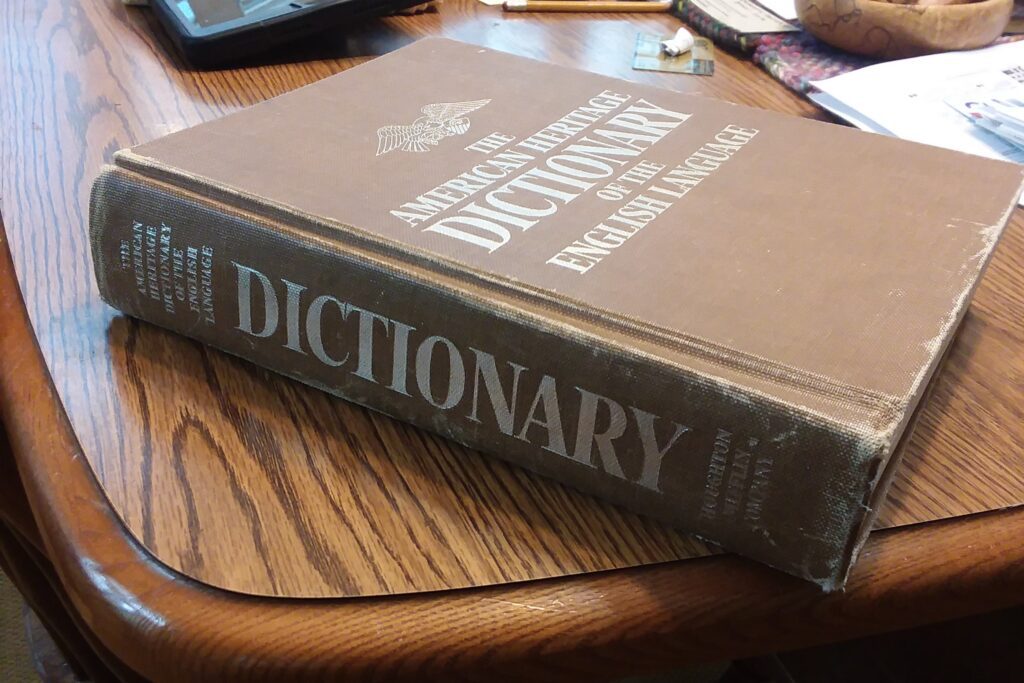
Ask a millennial for updatesI can comprehend transgender and a range of in-between gendering though I get hung up on language as I am aging in place and my mouth needs to catch up with my heart. The whole singular “they/them” deal keeps my head spinning. I am not the language police, but habits die hard. As a product of New Jersey, I still say “you guys” to a bunch of women, even though 42 years in Texas has added “ya’ll” to my vocabulary. Language has settled into my primal brain and is difficult to dislodge. I don’t need to be considered politically correct so much as decidedly out of the insensitive asshole range when hanging with my fellow humans. I am touched when our millennial offspring offer to steer us around a quagmire of newly-developed vocabulary which they so easily have adopted. I’d like to think I am coming around.
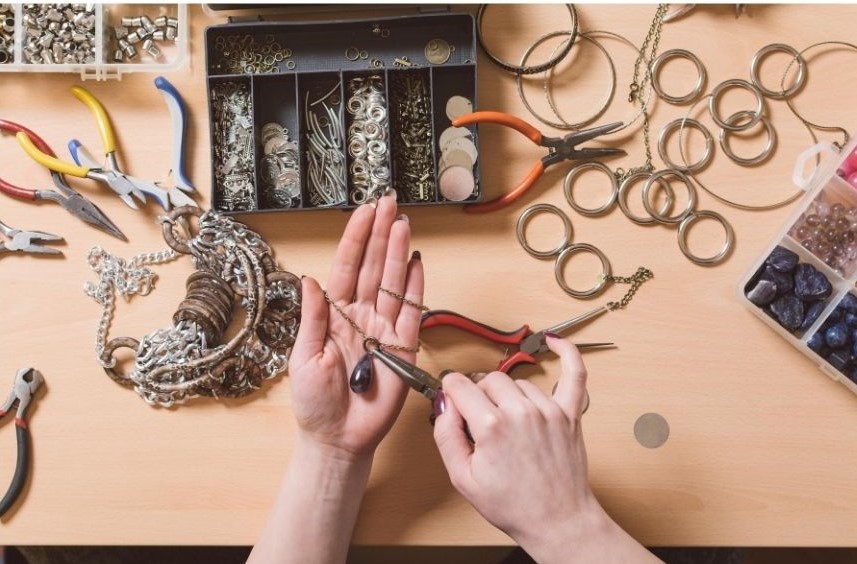
Jewelry makingNow when I sit on the bus next to a person whose appearance won’t square away into any of my perceived gender boxes, I talk to them. I have learned that pink bike shorts person makes jewelry. I find this vastly more interesting than the reactional spoutings from fellow passengers.
I have learned that gender is personal and complex. As the stereotypes of acceptable gendered looks and behavior lodged in my head begin to erode, I find myself willing to accept a more open range of ways to express personality and identity. I already knew that men cook and have romantic souls and women play sports and fly military jets. Non-conforming gender identity is a revolution for us all. I am happier with being my authentic self and am willing to be more generous with my heart toward others. I’ll just relate to everyone as I did with Paco all those years ago. I promise I won’t carelessly leave anyone unattended and at risk of being kidnapped by my brothers, though I believe they gave that up as a form of entertainment years ago.
Go on and be you,
Cheryl
Guest Editor Gina has an intuition for what needs to be added to fill out a story. She’s always willing to take on the sensitive topics. She too has a millennial to teach her the most current lingo.




Yes! We keep learning. I have one that is stuck in the old ways and one that has carried me forward! Great piece!
Thank you! Learning is living!
Once again a topic I have experienced in multiple ways.
My best friends son is now transgender
My brother in law, a gay man, died in 1981 from AIDS
my other bestie was with a woman when I met her 6 yrs ago and now is with a man – aka baby daddy.
We talk all the time about not “seeing” gender but responding more to connection